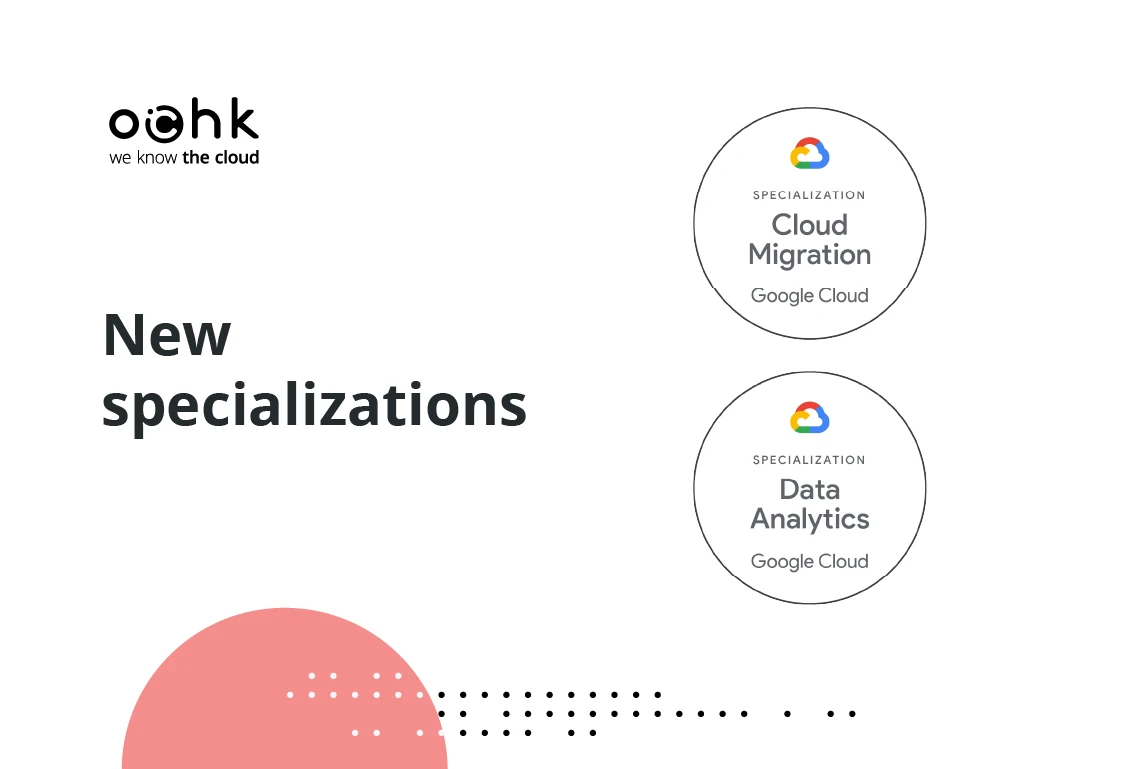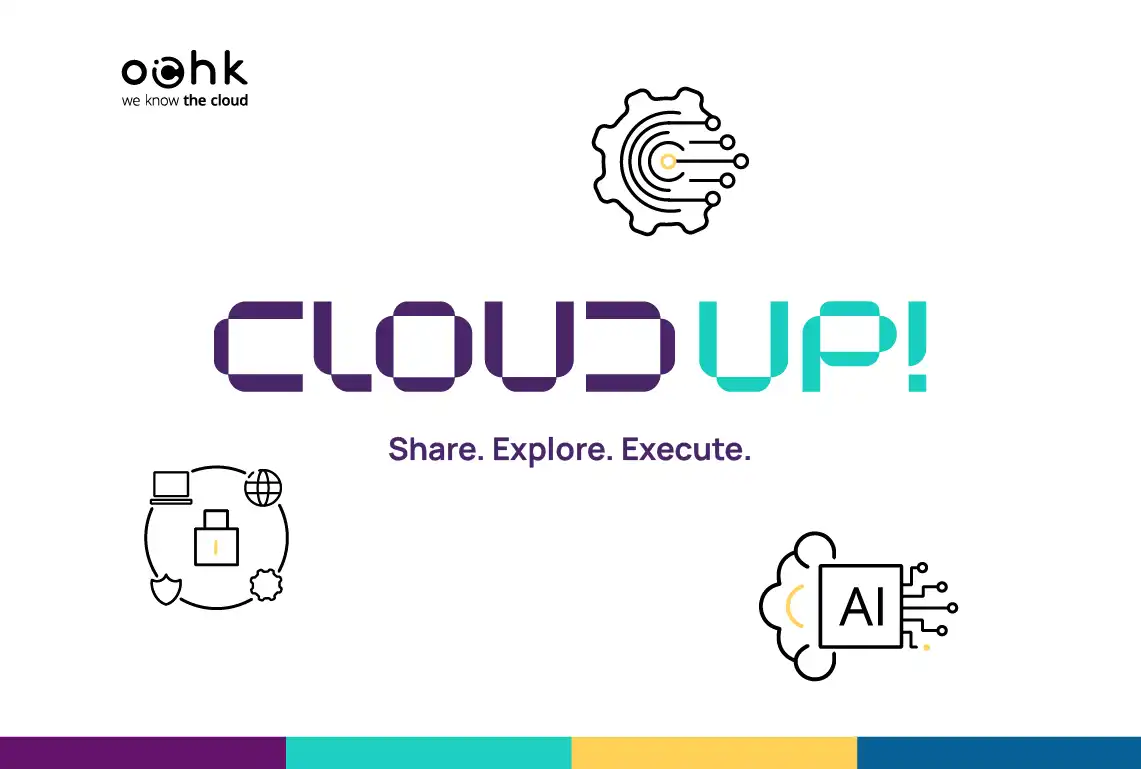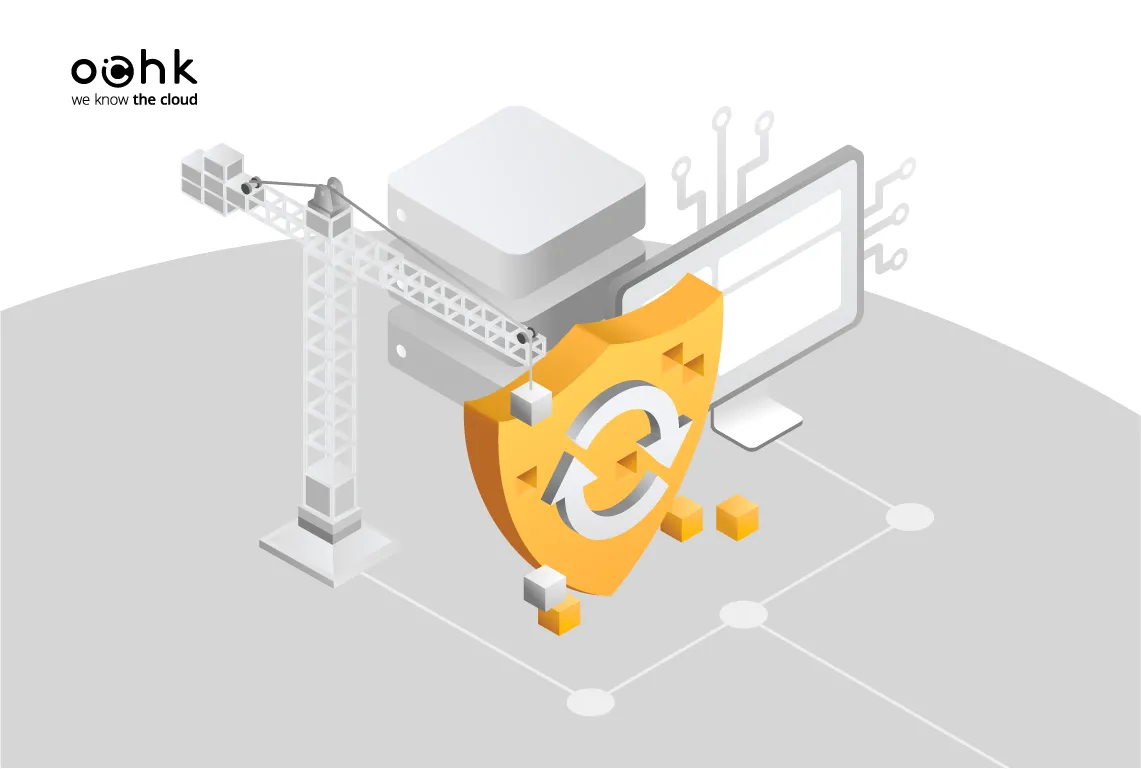Cloud computing technology offers numerous obvious benefits, including better service scalability, cost optimization, improved security mechanisms, and access to innovations that help build a competitive edge. However, migrating IT infrastructure to the cloud, such as Google Cloud, is quite a complex challenge, the effects of which have a huge impact on your organization's operations. To adequately prepare and effectively leverage new tools tailored to your business needs and goals, a thorough analysis of your current situation is essential. This article outlines key issues to consider before you decide to migrate.
1. Rapid Business Growth
A sudden increase in customers, users, or data processing can strain traditional infrastructure. Google Cloud offers scalability, allowing you to flexibly adjust resources based on current needs without investing in additional hardware.
Whether growth is seasonal (e.g., in e-commerce) or driven by strategic initiatives (e.g., market expansion or new product launches), cloud solutions significantly improve system efficiency and performance while reducing infrastructure maintenance costs.
2. Increasing Infrastructure Costs
Maintaining on-premise infrastructure often incurs high costs related to hardware purchases, maintenance, monitoring, and staffing. When analyzing a potential migration to Google Cloud, it's important to evaluate your current expenses and compare them to the estimated cost of cloud infrastructure.
Migrating to Google Cloud enables a pay-as-you-go model where you only pay for the resources you use, potentially reducing operational costs. However, the optimization of spending requires proper configuration of cloud components—inefficient use of resources can lead to unnecessary costs, hinder organizational control, and impede growth.
At OChK, we offer a solution that supports effective management and cost control in a cloud environment—FinOps. Learn more about what FinOps is, the challenges it helps solve, and the benefits it brings here.
3. Strive for Innovation
Competing in the technology market means adapting to rising customer expectations, regulatory requirements, and evolving cybersecurity threats. To help you maintain a strong market position, accelerate time to market, and streamline product deployment and testing while ensuring security, Google Cloud offers:
-
Compute Engine: A computing and hosting service that provides customizable virtual machines, ideal for businesses that need efficient servers for applications, hosting, or business processes. Pay only for what you use, ensuring cost control.
-
Kubernetes Engine: A managed environment for running containerized applications, offering easy scaling, automation, and time savings for small and medium businesses.
-
Cloud SQL: A fully managed database service supporting MySQL, PostgreSQL, and SQL Server, enabling secure data storage and integration with other Google Cloud services.
-
App Engine: A platform for building and running applications without managing infrastructure, ideal for businesses prioritizing scalability, reliability, and ease of deployment.
Google Cloud’s wide range of modern technologies enhances organizational efficiency and flexibility, offering significant business growth opportunities.
4. Global Reach and Low Latency
Cloud infrastructure is especially beneficial for businesses that need fast access to services around the world. Google Cloud's global network of data centers across six continents ensures minimal latency, improving service quality and making it easier to scale to new markets without large infrastructure investments.
Unlike traditional IT infrastructure, where a data center outage can cause significant downtime, Google Cloud provides automatic data replication and failover between regions, ensuring high availability (99.95% SLA) and advanced security, including DDoS protection.
See how OChK leveraged Google Cloud to modernize the Booksy app: Booksy and Unlimited App Development Possibilities with Google Cloud.
5. Security and Compliance Management
Depending on your industry and digital products, security is a critical consideration when migrating to the cloud. Regulations such as GDPR, NIS2, and DORA, as well as increasing cyber threats, require advanced security measures. Traditional IT environments often require time-consuming, costly, and error-prone manual configurations, while compliance with international standards can be challenging.
Google Cloud offers built-in security mechanisms, including:
- Automatic data encryption at rest and in transit;
- Cloud Key Management: Control over encryption keys;
- Cloud Logging: Real-time event log aggregation to detect unauthorized access;
- Cloud Monitoring: Monitoring application and infrastructure performance;
- Security Command Center: Centralized security management and compliance monitoring;
- Organization Policies: Centralized resource management and configuration requirements.
Google Cloud is certified to international standards such as ISO/IEC 27001, SOC 1/2/3, GDPR, HIPAA, and FedRAMP, simplifying regulatory compliance across industries and regions.
Google invests billions in security research and development and employs top cybersecurity experts, ensuring that customers benefit from continuously updated, high standards of security.
To fully realize the security potential of the Google Cloud, it is critical to understand its specifics and implement appropriate configurations and processes. OChK helps customers ensure the security of their IT environments, including hybrid and multi-cloud setups. Learn more here.
6. Outdated On-Premise Infrastructure
A common reason for cloud migration is the limitations of aging on-premises infrastructure and technical debt. When considering a change, it's important to assess the implications of sticking with current technology.
Traditional infrastructure often struggles to meet growing application and user demands, with slower processors, limited memory, and low bandwidth causing delays and downtime. Scalability is also a challenge—expanding infrastructure requires costly and time-consuming server purchases.
Maintaining outdated servers often involves frequent, expensive repairs due to scarce replacement parts, while modern technologies like AI, big data, and automation are inadequately supported. Integration with other systems becomes less efficient.
In a cloud environment, on the other hand:
- You can dynamically increase or decrease resources as needed—without buying new servers.
- Solutions such as auto-scaling in Compute Engine allow you to automatically adjust compute power to meet application demands.
- Integration with the Google ecosystem enables organizations to innovate quickly, and the platform itself offers the advanced tools mentioned above, such as BigQuery for data analysis, Vertex AI for machine learning, and Cloud Functions for process automation.
- Organizations can eliminate the need to purchase and maintain their own hardware and use a pay-as-you-go model based on actual resource usage instead.
- Google Cloud manages the infrastructure in its data centers, which are optimized for energy efficiency.
- Management requires fewer human resources—many processes, such as updates and monitoring, are automated.
- Google Cloud provides a 99.95% SLA for most services, so users can count on uninterrupted access to applications.
- Data is automatically replicated across regions, increasing resilience to outages.
- Tools like cloud storage and cloud backup enable backup and disaster recovery.
7. Team Collaboration
Adopting a cloud environment can also improve team efficiency and communication. Google Workspace tools (e.g., Gmail, Drive, Meet, Chat, Calendar, Forms, and AI-powered Gemini) enable real-time collaboration, global access to resources, enhanced data security, and increased productivity.
Google Workspace suits organizations of all sizes and industries, regardless of their work model (onsite, hybrid, or remote). Cloud migration can also enhance work comfort for geographically dispersed teams and reduce costs associated with document management systems.
Learn more about Google Workspace here.
Conclusion
Migrating to Google Cloud offers benefits across multiple areas—cost savings, growth opportunities, security, and work comfort. Considerations often lead to the conclusion that cloud adoption is highly advantageous for competitiveness and business development.
However, a thorough understanding of your organization’s IT infrastructure needs and Google Cloud’s technology is essential to fully leverage its potential.
To ensure a smooth and successful migration with expected outcomes, consider partnering with a Google Cloud expert like OChK. Our team offers expertise, experience, and competitive pricing—contact our experts today.
To learn more about the benefits of working with a Google Cloud partner, read this article: Google Cloud Partner: Why Collaborate with a Google Cloud Partner?


